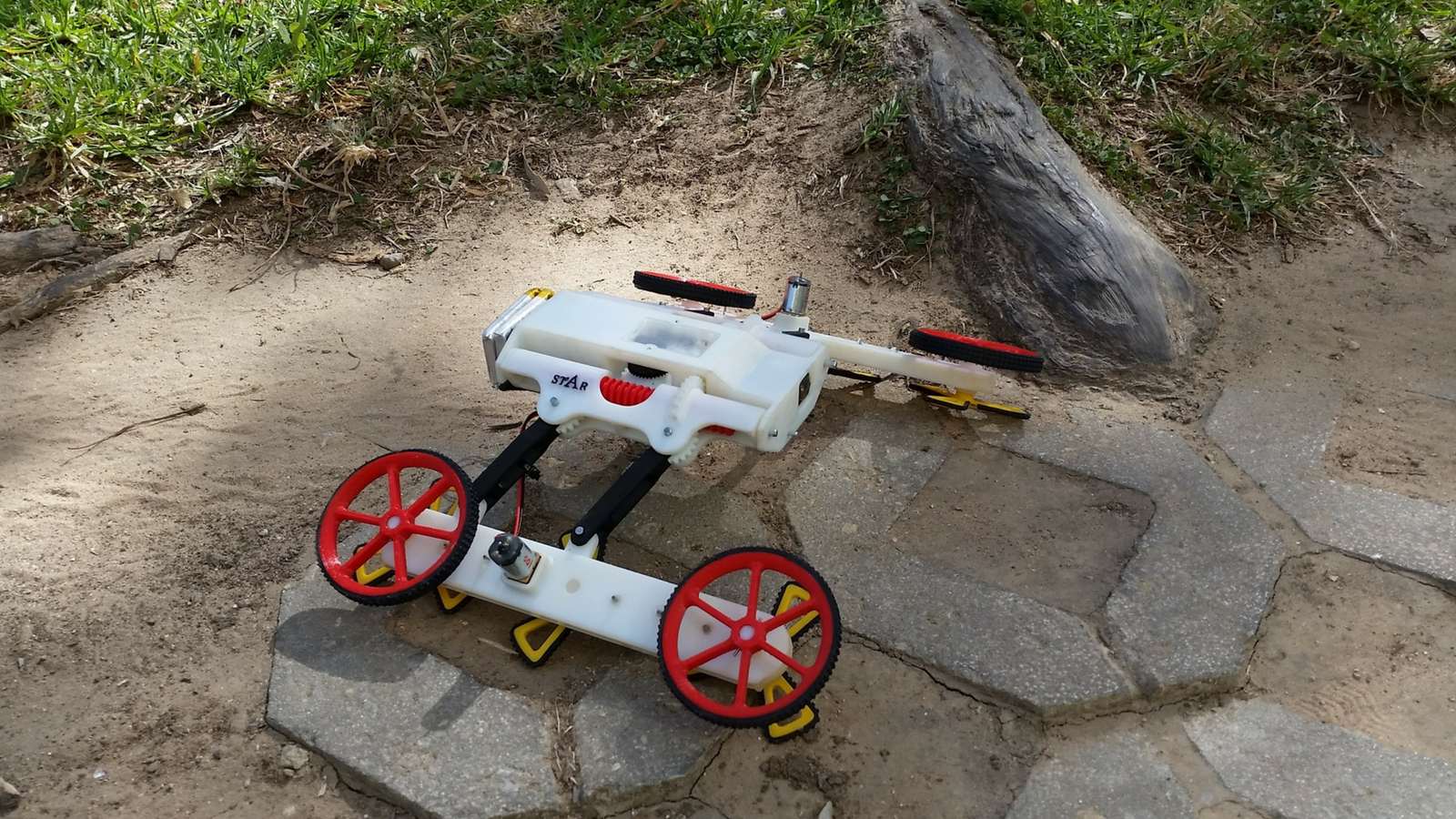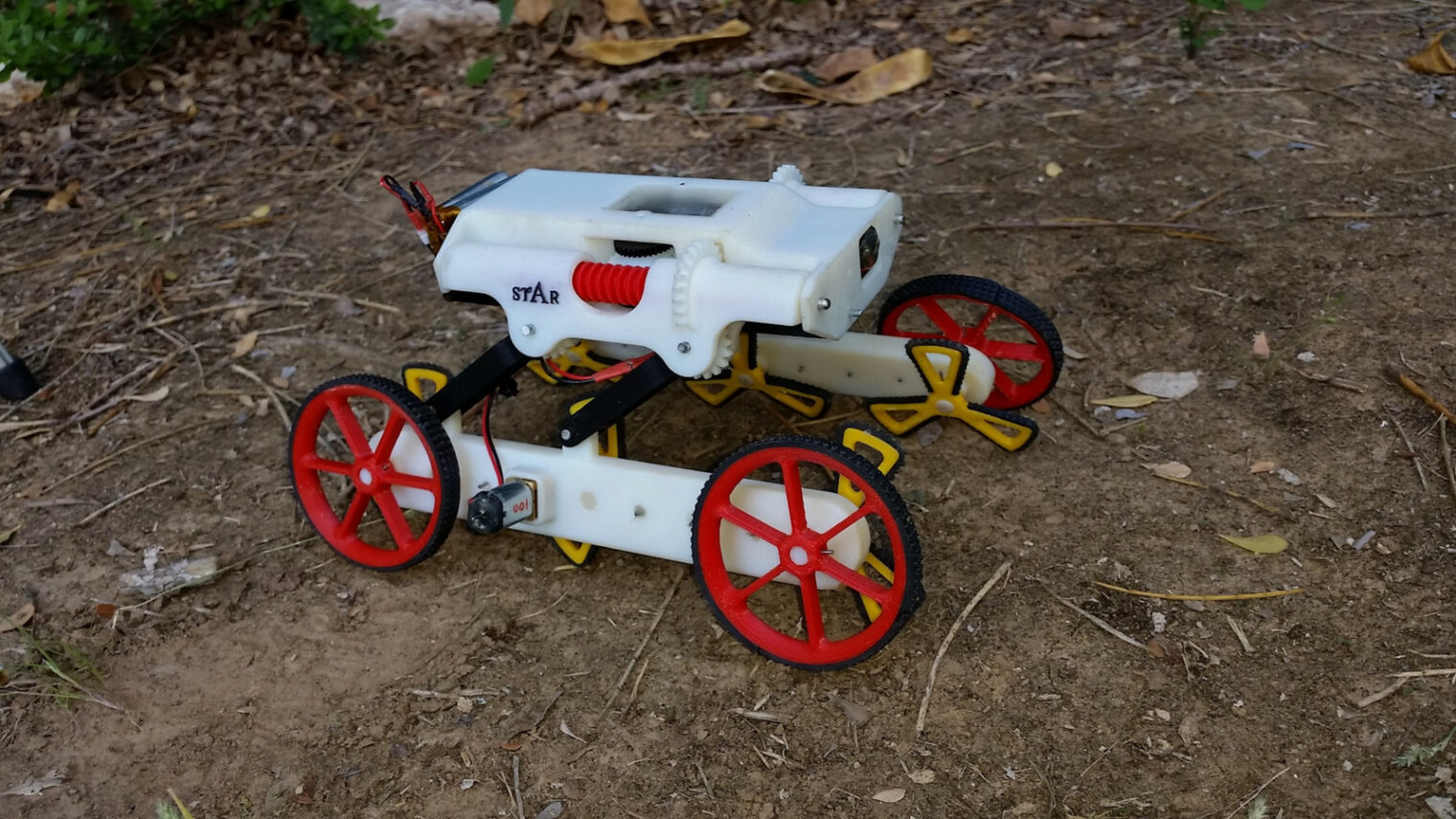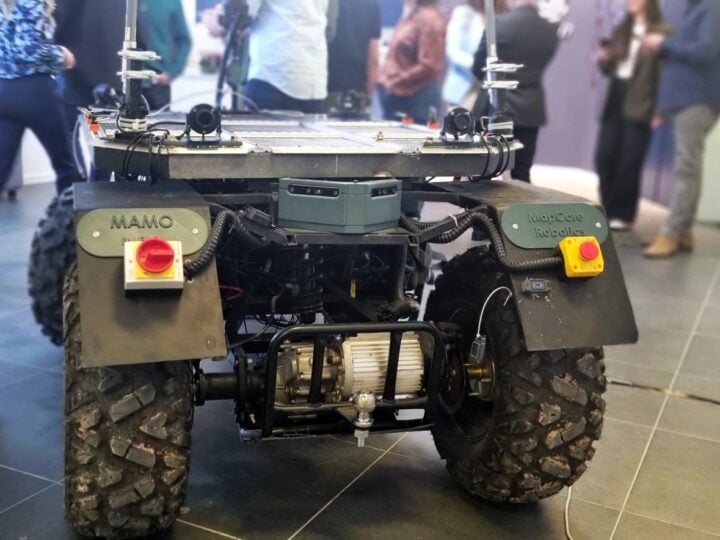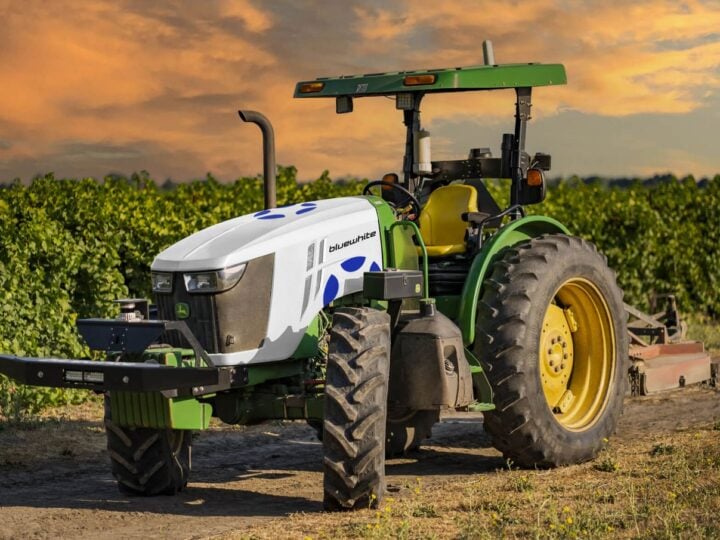The newest member of the robot family at Ben-Gurion University of the Negev (BGU) is RSTAR, a highly maneuverable search-and-rescue robot that can creep, crawl and climb over rough terrain and through tight spaces.
Developed by BGU researchers, RSTAR – which stands for Rising Sprawl-Tuned Autonomous Robot – utilizes adjustable sprawling wheel legs attached to a body that can move independently and reposition itself to run on flat surfaces, climb over large obstacles and up closely-spaced walls, and crawl through a tunnel, pipe or narrow gaps.
The innovative new robot was introduced in May at the International Conference on Robotics and Automation (ICRA 2018) in Brisbane, Australia.
“The RSTAR is ideal for search-and-rescue operations in unstructured environments, such as collapsed buildings or flooded areas, where it must adapt and overcome a variety of successive obstacles to reach its target,” says Bio-Inspired and Medical Robotics Lab Director David Zarrouk, a lecturer in BGU’s department of mechanical engineering.
Previous robots developed by Zarrouk and the BGU team include 1STAR, a steerable robot that uses only one motor, and MASR (Minimally Actuated Serial Robot), a snake-like robot that travels along a rotatable structure using just two motors, making it unusually lightweight, small and inexpensive.
Zarrouk worked together with BGU student and robotics lab worker Liran Yehezkel to create RSTAR, designing it to function simply and reliably, change shape and overcome common obstacles without any external mechanical intervention.
3 feet per second
Its speed and relatively low energy consumption make the robot ideal for a broad range of applications that may require longer work time, BGU said in a statement.
Using its round wheels, the robot is able to travel more than three feet per second on hard flat surfaces. It can also switch to spoke wheels to avoid getting stuck in extremely soft or granular surfaces, like thick mud or sand.
RSTAR can climb vertically and crawl horizontally by pressing its wheels to walls without touching the floor.

BGU said the creation of a larger version of the STAR robot is already underway. This one will be able to climb over larger obstacles, including stairs, and carry more than four pounds of sensors and supplies.
A smaller STAR or RSTAR will piggyback on the larger robot for use in hard-to-reach areas and between narrow cracks and passages.
Israeli rescue robots
The RSTAR joins a growing list of rescue robots that have been developed in Israel in the last several years.
The Rooster, developed by Israeli startup RoboTiCan, can help reach injured victims of natural disasters where it’s not safe to send a human rescue worker. Its unique ability to walk, hover and fly over obstacles sets it apart from other search-and-rescue robots that can either walk or fly, but not both.
In 2016, Tel Aviv University and ORT Braude College collaborated on the development of a five-inch-long featherweight robot dubbed “TAUB” in tribute to both academic institutions.
Inspired by the common locust, the tiny high-jumping TAUB robot could be used for sending lifesaving reconnaissance data to human rescue teams in disaster situations, or for cleaning up oil spills or for gathering intelligence – and many other difficult missions unsuited to large robots and humans.
The robotic octopus arm, created in 2011 by an international group of scientists including Hebrew University Prof. Binyamin Hochner, was modeled after a real octopus that lives in the Mediterranean Sea. The robotic arm can wrap around objects or people and then stiffen to grasp them, making retrieval possible in difficult underwater environments.
















